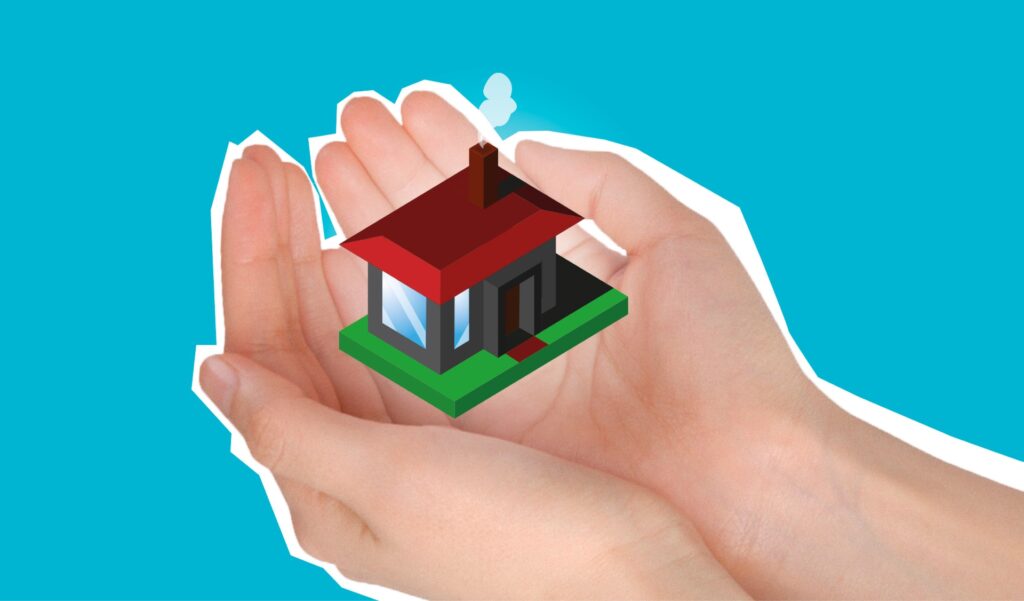Physical Address
304 North Cardinal St.
Dorchester Center, MA 02124
Physical Address
304 North Cardinal St.
Dorchester Center, MA 02124
New homebuyers are typically faced with a number of different costs, and it’s expected that they would try to cut them where possible. For that reason, one of the most common questions they have is: does mortgage insurance go away? Let’s find out!
Yes, mortgage insurance goes away, and the period of time you’ll be paying for it depends on the type of loan you took. Most commonly, private mortgage insurance is canceled when you have paid 20 percent of the original value of your home. These conditions are usually set in writing within the contract that comes with PMI.

There are different types of PMI you can get in order to make the lender more secure of the money they lend you. Unfortunately, there are many unpredictable events that can happen, which put the lender’s assets at risk of losing.
Mortgage insurances can help you get better loan conditions – or interest rates since this can seem more convincing to lenders. However, the periods of paying off that insurance can be pretty long.
The mortgage default insurance is required when you put less than 20% down payment needed for a conventional mortgage. If you go for this type of policy, you’ll be able to buy a home for as little as 5% down.
This policy protects the lender in case any of the clients (borrowers) defaults with a loan. So, how does the whole process work? Once you decide to buy the specific home, the lender will set up all the details with the insurance company and pay for the policy. This amount will be later added to your installments, so you’ll pay for it with interest. The benefit is both for the banks who insured their payment and the future homeowner who can pay only 5% down with the policy.
For all those who are worried about unexpected events, mortgage life insurance could be the right solution. This type of policy covers the debt balance, which decreases as the debt is paid off and is paid with every installment. Although this type of policy is not required, it can still be a convenient way to convince banks to give you better loan conditions.

So, how long does mortgage insurance stay on your mortgage? Undeniably, this is something that most worries the majority of homeowners. Although the typical period is around 11 years, this time can be shorter or longer, depending on factors like loan terms, duration, and original down payment. To get an idea of how the rules change, take a look at the table below.
| Loan Duration | Original Down Payment | Mortgage Insurance to Be Paid (in years) |
| All loan terms | Less than 10% | Until the loan is paid off |
| All loan terms | More than 10% | 11 years |
| 20, 25, or 30 years | Less than 10% | 5 years if loan-to-value equals 78% |
| 20, 25, or 30 years | More than 10% | 5 years if loan-to-value equals 78% |
| 20, 25, or 30 years | More than 22% | 5 years |
| 15 years | Less than 10% | 5 years if loan-to-value equals 78% |
| 15 years | 10-22% | 5 years if loan-to-value equals 78% |
| 15 years | More than 22% | / |
Although the lender usually terminates your private mortgage insurance automatically after the loan-to-value ratio reaches 78%, there are a few ways to get rid of mortgage protection.
In case your lender doesn’t remove the private mortgage insurance automatically, you can request the cancellation of the private mortgage protection when you reach 20% of the real estate value. To be eligible for mortgage insurance removal, make sure to meet all the requirements the lender has, such as not having a second mortgage on the same property or being on time with payments. And of course, don’t omit to submit this request in written form.
Another solution to get rid of your insurance faster is to refinance your mortgage which is especially good if your property gained substantial value since the last time you got the mortgage. This implies you will wait for your house to reach at least 15% of the value of the original mortgage and then ask for refinancing. When refinancing under these conditions, it means you’ll get rid of the mortgage insurance but not be required to pay for a new one because you’ll have the amount necessary to cover the down payment. And that would be a double saving!
Making a new house appraisal is a great idea if the real estate market becomes hot in the area. This could mean that your home is now worth more. In case you have owned it for at least five years and the loan balance does not exceed 80 percent of the new valuation, you can ask the lender for PMI to be canceled.
Loans provided by the Federal Housing Administration require significantly lower down payment amounts. However, getting rid of them is strictly defined by terms and conditions. If the down payment is less than 20%, the FHA mortgage insurance will last as long as the credit life lasts.
In case the client puts at least 10% of the down payment on the FHA loan, the mortgage insurance will fall off on the 11th year. This means the client will be paying for this type of insurance for full ten years, and there is no way to get rid of this expense before this period of time.
While mortgage insurance is mandatory, and no lender will give you a loan without it, mortgage protection insurance is run on a voluntary basis. However, the lender has the right to ask for this type of insurance if the amount of your down payment is less than 20%. This type of insurance protects the borrower in case of job loss or other unpredicted events (death or disability) and guarantees that the amount of the loan will be paid to the lender as agreed at the beginning.
Absolutely! High monthly installments can be reduced after some time. As we have seen, one of the most convenient ways to do it is to get rid of your mortgage insurance protection, and there are a few successful methods to do it. Just make sure to consider all details and options before making a move, and consult your financial advisor on whether that is a good idea.